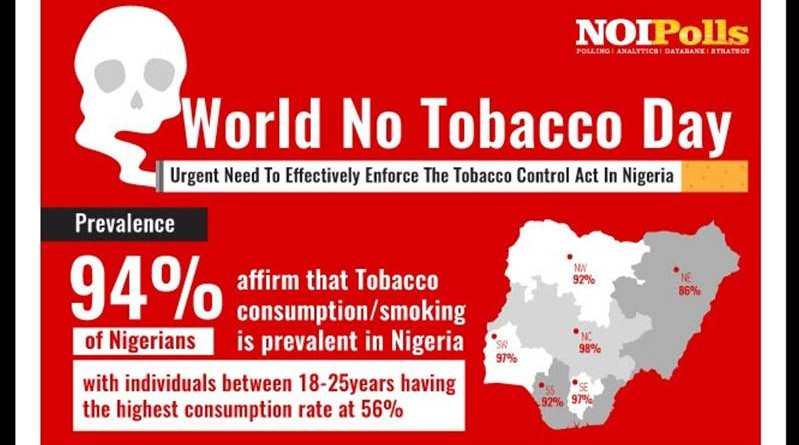Grow Food Not Tobacco – WHO advises on the occasion of the 2023 World No Tobacco Day
The tobacco pandemic is one of the world’s most serious public health concerns, killing more than eight million people each year. While the use of tobacco products is falling in other regions of the world, it is increasing in Africa. For example, the number of adult cigarette smokers in the WHO African Region climbed from 64 million in 2000 to 73 million in 2018. [1] This is attributable in part to increased tobacco product production as well as strong tobacco industry marketing.
Dr. Matshidiso Moeti, Regional Director’s Message: The World Health Organization joins the rest of the international community in commemorating World No Tobacco Day today, May 31, 2023. This day allows us to emphasize the risks linked with tobacco use and exposure to tobacco smoke. It is also an opportunity to reinvigorate our fight for effective legislation to combat the tobacco epidemic and its consequences for individuals, societies, and nations.
This year’s theme is “Grow Food, Not Tobacco”. This theme aims to raise awareness about alternative crop production and marketing opportunities for tobacco farmers and encourage them to grow sustainable, nutritious crops. The theme also seeks to expose the tobacco industry’s efforts to interfere with attempts to substitute tobacco growing with sustainable crops, thereby worsening the global food crisis. It calls on all of us to explore how food and agricultural policies make adequate nutritious food and healthy diets available while reducing tobacco production.
Tobacco growing and production exacerbates nutrition and food insecurity. Tobacco farming destroys the ecosystems, depletes soils of fertility, contaminates water bodies and pollutes the environment. Any profits to be gained from tobacco as a cash crop may not offset the damage done to sustainable food production in low- and middle-income countries.
Globally, almost 828 million people are hungry. 278 million (20%) of these are in Africa [2]. Furthermore, 57.9% of Africans experience moderate to severe food insecurity. This jeopardizes the region’s ability to meet SDG 2, which calls for the abolition of hunger, the achievement of food security and improved nutrition, and the promotion of sustainable agriculture. The escalation of the key drivers of current food insecurity and malnutrition trends, such as conflict, extreme weather, and economic shocks, exacerbates the problem. As a result, our coordinated efforts are critical to ensuring that everyone has adequate food.
The rising tobacco farming in Africa is posing a serious threat to food and nutrition security. According to available data, while global tobacco farming declined by 15.7% between 2012 and 2018, it climbed by 3.4% in Africa. Tobacco leaf production decreased by 13.9% globally over this time period, but climbed by 10.6% in Africa. Tobacco farming has relocated to Africa in recent years due to a more favorable regulatory framework for the tobacco industry, as well as increased demand for tobacco.
WHO is working with Member States and other partners to assist farmers in shifting from tobacco growing to alternative crops. In the last two years, an initiative in Kenya has assisted over 2000 tobacco farmers to turn to alternative crops. This has resulted in improved food and nutrition security, increased income for farmers, healthier farming activities as well as environmental rehabilitation. The expansion of this initiative to Uganda and Zambia has started, and should be encouraged for all tobacco-growing countries in Africa.
Governments should support tobacco farmers to switch to alternative crops by ending tobacco growing subsidies and using the savings for crop substitution programmes to improve food security and nutrition. Shifting from tobacco to nutritious food crops has the potential to feed millions of families and improve the livelihoods of farming communities in Africa.
Such initiatives will also combat desertification and environmental degradation, raise awareness in tobacco farming communities about the benefits of transitioning away from tobacco and growing sustainable crops, and expose the tobacco industry’s efforts to stymie sustainable livelihoods work in Africa.
Finally, we urge tobacco-growing countries in the Africa Region to accelerate implementation of Articles 17 and 18 of the WHO Framework Convention on Tobacco Control (WHO FCTC) by enacting legislation, developing and implementing appropriate policies and strategies, and enabling market conditions for tobacco farmers to shift to growing food crops that would provide a better life for them and their families while improving environmental and health protection. in this way we will be growing food, which our populations need, not tobacco.
.




